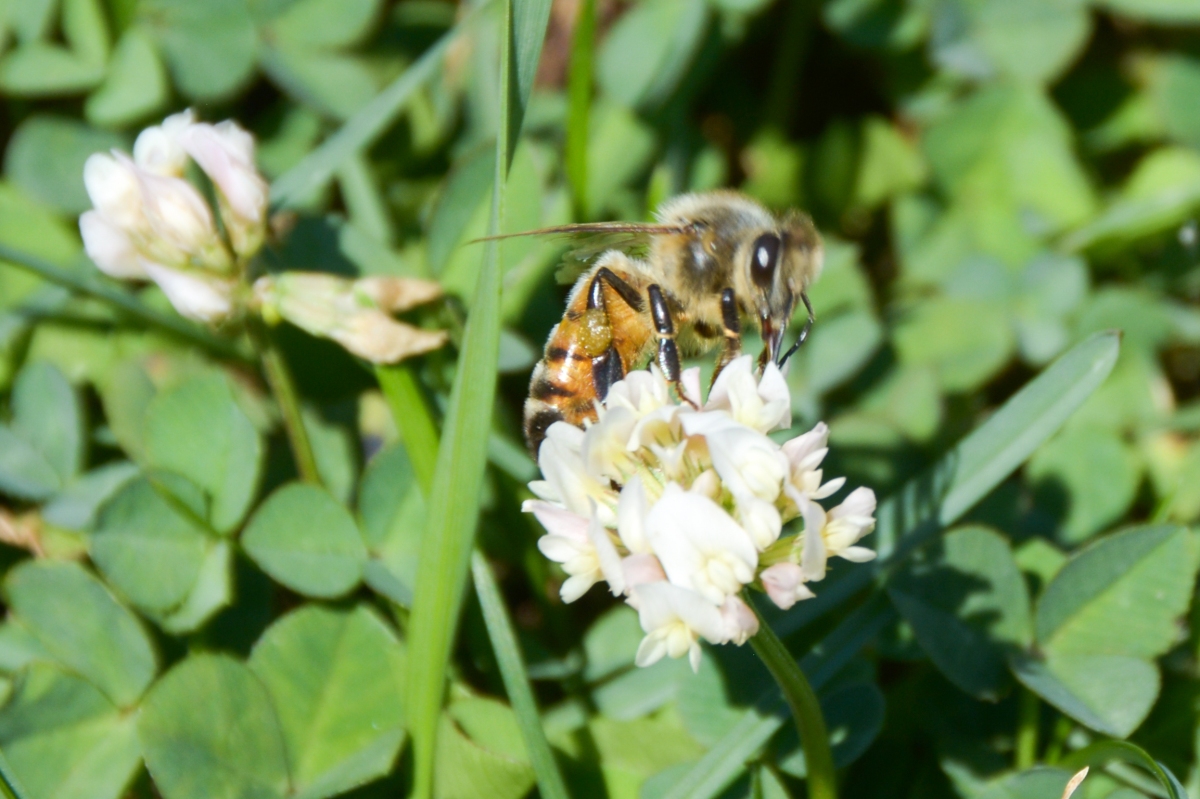Prepared by Randall McQuaker, Pesticides Director, & Kim Perrotta, Executive Director CAPE
On February 19th, the Quebec Minister for Sustainable Development announced a new law for pesticides which represents a huge leap forward for provincial laws in Canada. It includes a ban on five pesticides that are commonly used in the agricultural sector – three neonicotinoid pesticides (neonics), atrazine and chlorpyrifos. Neonics are harmful to bees and many other living organisms in the ecosystem, chlorpyrifos was recently named a “toxicant” to children’s development by the State of California, and atrazine has been banned in Europe for more than a decade.
In July 2015, Ontario became the first jurisdiction in North America to restrict the use of neonics when it passed a regulation that aims to reduce the acreage upon which neonic-treated seeds were used, by 80%, by 2017. That regulation allows farmers to use neonics where an independent pest specialist demonstrates that they are needed to treat an existing pest infestation.
To date, however, the Ontario regulation has fallen far short of achieving the intended goal. New figures from the Ontario Ministry of Agriculture, Food and Rural Affairs show that the number of acres planted with treated seed in 2017 was down by just 22 per cent for corn and 27 per cent for soybeans, compared to 2014. Last year, some 61,500 tonnes of treated seed were sold in Ontario and about 3-million acres were planted with neonic-treated seeds. A new target date for achieving the 80 per cent reduction goal has not been announced.
The new Quebec legislation will also allow farmers to use the banned pesticides with a “prescription” from a certified agricultural specialist. While the regulations take a major step in the right direction, much more is needed. The new regulations do not set clear targets and timelines for the complete elimination of the highest-risk pesticides. And we have concerns that the exceptions allowed with “prescriptions” from agronomists could become the rule, and undermine the intent of the bans. The good news is that a committee, which will include representation by Equiterre and the David Suzuki Foundation, is being established to monitor the implementation of the law.
In the meantime, the case for the complete banning of neonics has gotten stronger. The independent international Task Force on Systemic Pesticides, which has declared that neonics are threatening the ecosystems on which humans depend for food, clothing and shelter, released a new report in February 2018. After analyzing some 200 peer-reviewed scientific studies, the Task Force has found that insect pests quickly develop resistance to neonic pesticides, calling their long-term use into question. The study also notes that alternative practices such as field rotation and planting resistant crop varieties are more effective at reducing pests, less expensive, and less harmful to the environment than application of neonic pesticides.
References:
· Quebec Ministry of Sustainable Development, February 19, 2018. Press Release: “Mise en œuvre de la Stratégie québécoise sur les pesticides – Meilleure protection pour la santé, l’environnement et les abeilles.” http://www.mddelcc.gouv.qc.ca/infuseur/communique.asp?no=3921
· Ontario Ministry of Environment and Climate Change, February 2018. “Neonicotinoid Regulations for Seed Vendors: End of year reporting (2017).” Access at https://www.ontario.ca/page/neonicotinoid-regulations-seed-vendors#section-5
· Task Force on Systemic Pesticides, 2015. “Worldwide Integrated Assessment of the Impacts of Systemic Pesticides on Biodiversity and Ecosystems.” Access at http://www.tfsp.info/assets/WIA_2015.pdf
· Furlan, Lorenzo et al. “An Update on the worldwide integrated assessment (WIA) on systemic insecticides. Part 3: alternatives to systemic insecticides.” Environmental Science and Pollution Research, 2018. Access at https://link.springer.com/article/10.1007%2Fs11356-017-1052-5

